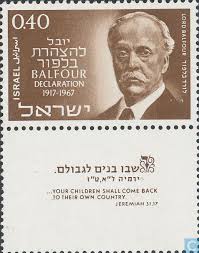As 2018 slouches into history, I can think of one item of quality that this year produced: meaningful books about Israel.
Now, “the making of many books is without limit / and much study is wearying of the flesh” (Ecclesiastes 12:12). That warning, tacked onto the end of Kohelet by a revisionist editor, could easily apply to contemporary books about the Middle East. After all, books about Israel that seemed so important just a few years ago have tended to quickly become dated.
Yet there are three books that appeared this year that I suspect will continue to be useful in five and even ten years to come. Each may even guide us on how to talk respectfully to each other again.
My friend Yossi Klein Halevi’s Letters to My Palestinian Neighbor has a heartfelt mission: to cogently and concisely explain the narrative of Israel’s existence. Yossi is a pioneer in fostering Jewish-Muslim understanding, and, G-d willing, this book will contribute to that effort. It is a series of chapters directed to a fictional Palestinian neighbor who lives across the valley from the French Hill neighborhood in Jerusalem where he lives. And he has reinforced the message by publishing a free Arabic version of the manuscript on the internet with a heartfelt invitation for someone to write a “Letters to My Israeli Neighbor” in response.
Yet somehow I can’t shake the feeling that the format of the book is simply a device—its real aim is to make the case for Israel in a clear way to any audience needs it. A big part of that audience is the American Jewish community, which urgently needs to learn how to articulate the case for Israel without anger and defensiveness (despite that fact that we have real enemies on the right and the left who tend to elicit anger and defensiveness from us). In that sense, this book is enormously important—and it will continue to be valuable for years to come.
Also arriving in 2018 was Gil Troy’s anthology The Zionist Ideas, a re-visioning of Arthur Hertzberg’s essential book The Zionist Idea from 1959. Hertzberg was the first to collect primary sources, in English translation, of the great thinkers from the 19th and 20th century who built the intellectual foundations of the Jewish State. And what a diverse group they were! The book captured the dynamic array of thought that sparked the most important revolution in Jewish history since the days of the Talmud—a revolution to which we are the fortunate heirs.
And yet, for all its breadth, Troy’s rethinking of Hertzberg reaches even wider. His Zionist Idea 2.0 not only updates the original with more than half a century of thinkers and activists, it also incorporates non-Ashkenazi voices (still not enough), women (Hertzberg had none!), a great many Diaspora Zionists, and perspectives from across the Jewish religious spectrum. Today’s Zionist community is even more eclectic, diverse, and contentious than it was in Theodor Herzl’s day—and that is really saying something.
To make room for all of these, Troy has dropped or abridged much that was in the previous volume. Therefore, instead of replacing Hertzberg, Troy’s book will sit neatly on the shelf next to the original. Together, they are the essential primary sources for understanding the complex foundations of Israel and its meaning in the 21st century. Students will be reaching for both of them for a long time to come.
Finally, 2018 saw the arrival of the English translation of Micah Goodman’s Catch-67, originally published in Hebrew in 2017. Milkud 67 was a runaway bestseller in Israel; it seemed like an entire country had become one big book group, debating Goodman’s analysis of why the country is so “stuck” in regard to the Palestinian land and people it conquered in a just, defensive war over 50 years ago.
The dilemma is well known. The right argues that ceding the West Bank would create an aggressive enemy state within spitting distance of Israel’s population centers; given the Palestinians’ history of implacability and terrorism, relinquishing the territories would be suicidal. The left argues that the occupation of a population that doesn’t want to be ruled by Israel is morally corrosive, drains Israel’s resources, and poisons Israel’s relationship with the rest of the world.
And both sides are correct. Thus, the “catch”, evoking Joseph Heller’s Catch-22. Up to now, no one—certainly none of Israel’s current sorry crop of leaders—has envisioned a way out of this mess.
Goodman not only diagnoses the dilemma, he tentatively offers a third way forward. Rather than grasping for ultimate solutions, he asks: what can we do today that will reduce hostility, build trust, and make short term but immediate improvements to everyone’s lives, Palestinians and Israelis alike? It’s a refreshing way of looking at a situation that has become so stalemated that no one has been able to offer any new thinking on the subject in many years.
One other thing makes Goodman so compelling. In his opening chapters, he describes a syndrome that is commonplace in Israel—and in America; namely, the inability of people of good faith and differing opinions to engage in civilized debate. It wasn’t always like this. Once, not so very long ago, friends and neighbors who saw the world differently could have meaningful exchanges with one another. The problem is when ideology becomes an intractable part of one’s identity. When that happens, Goodman argues, our opponents are no longer attacking our ideas, they are attacking our very selves. At that point, we get defensive, angry, and nasty. (For proof, see the public “comments” section of any Jewish current events website. Or better yet—don’t, it’ll make you sick.) If he’s right, then the implications of his book are valid far beyond the confines of the Israeli-Palestinian conflict.
As 2018 draws to its miserable close, I expect that these three books will have legs. They should give readers concerned about Israel plenty to think about and inspiration to draw upon for years to come.




